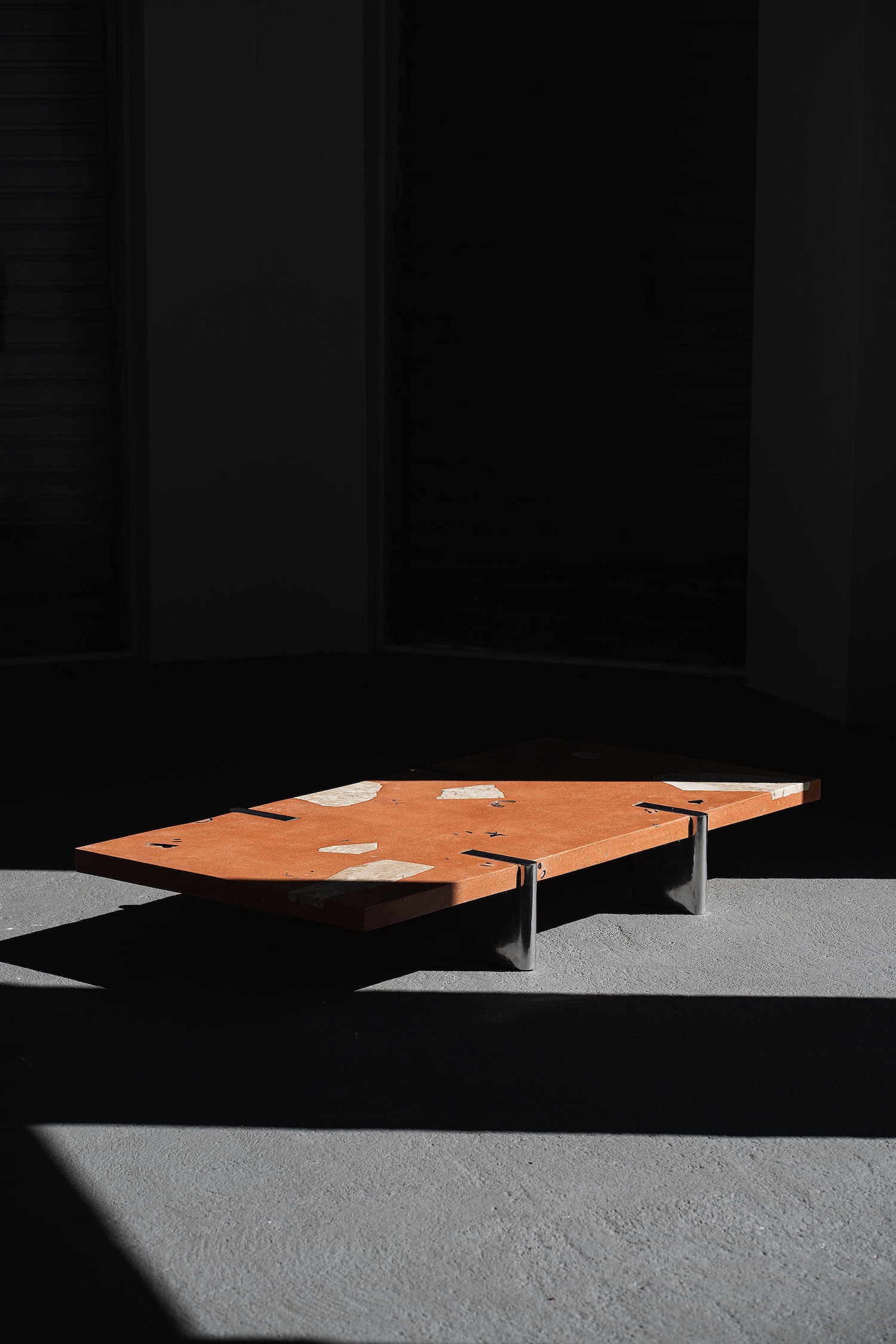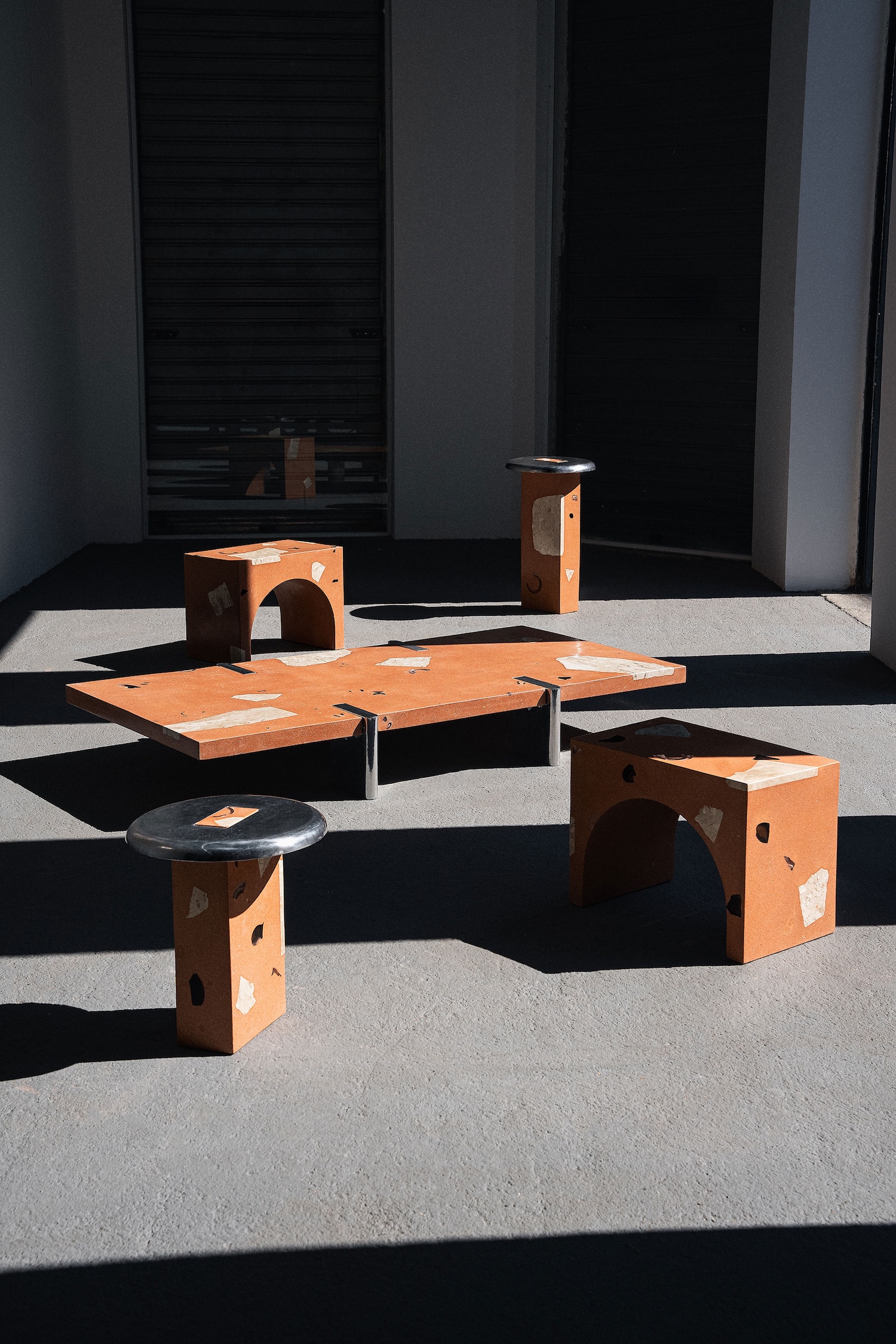Coffee Table NU is a minimalist coffee table designed by Brazil-based studio ASSIMPLY. In an era where sustainability often feels like an afterthought, the NU coffee table emerges as a powerful reminder of design’s transformative potential. Its very name – “nu,” meaning “now” in Danish – serves as both a temporal marker and an urgent call to action, challenging our contemporary relationship with materials and waste.
The piece’s most striking feature is its terrazzo-like surface, but this is no ordinary aggregate. Where traditional terrazzo might employ virgin materials, NU’s composition tells a story of redemption: crushed ceramic bricks that once formed buildings, fragments of glass that previously served other purposes, and reclaimed Bahia beige marble that had been destined for disposal. These materials, typically considered waste, are transformed through a meticulous manual process that honors both their past lives and future potential.
The coffee table’s aesthetic sensibility draws fascinating parallels to 1960s science fiction visions of the future. Its clean lines and industrial materials could have been pulled from the sets of “2001: A Space Odyssey” or “Fahrenheit 451,” yet its sustainable ethos speaks directly to our contemporary environmental crisis. This temporal tension – between retro-futuristic aesthetics and pressing ecological concerns – creates a compelling dialogue about design’s role in shaping our relationship with materials.
The manufacturing process itself becomes a kind of performance of sustainability. Each piece requires extensive manual intervention – from the initial collection of waste materials to the final application of nano-sealant and wax. The aluminum legs, cast from reclaimed metal in traditional sand molds, provide both structural support and visual counterpoint to the composite top. This labor-intensive approach stands in deliberate contrast to mass production methods, suggesting a new paradigm where craft and sustainability intersect.
What’s particularly noteworthy is how the design team has maintained material honesty throughout. Rather than disguising the recycled nature of their components, they celebrate it. The resulting aesthetic is both provocative and harmonious, with the various materials creating a surface that rewards close inspection while maintaining cohesion at a distance.
The NU coffee table represents more than just furniture – it’s a manifesto for design’s potential to address our waste crisis while creating objects of lasting beauty and utility. In this way, it builds upon the legacy of twentieth-century Brazilian modernism while pointing toward a more sustainable future, where the boundaries between waste and resource become increasingly fluid.







